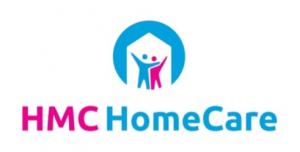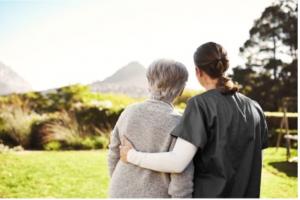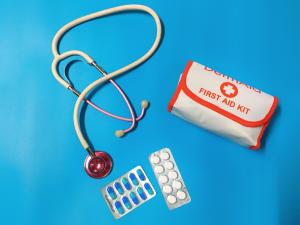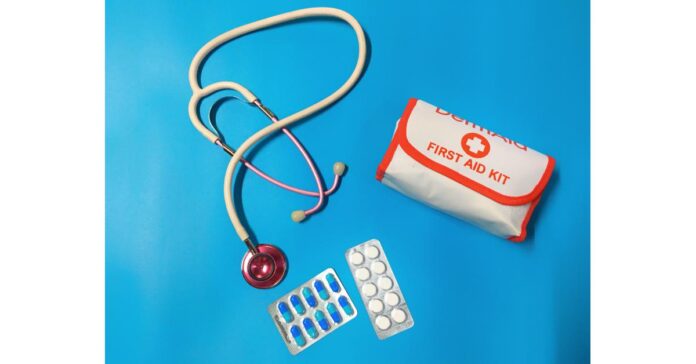
HMC HomeCare Logo

HMC HomeCare with Senior

First Aid Kit
Senior Safety First: A Guide for Natural Disaster Preparedness
— Charis Matsuwaki, HMC Homecare Supervisor.
HONOLULU, HI, UNITED STATES, October 12, 2023 /EINPresswire.com/ — Natural disasters can strike at any time, leaving individuals of all ages vulnerable. Seniors, however, may face unique challenges and being prepared is crucial. HMC HomeCare wants seniors and their families & caregivers to take proactive steps that can enhance their safety and resilience in the face of natural disasters.
1. Create a Personalized Emergency Plan:
Families and caregivers should work with seniors to develop a comprehensive emergency plan considering their specific needs. This plan should cover evacuation routes, medical information, emergency contacts, and a communication strategy.
2. Build an Emergency Kit:
It is essential to put together a well-stocked emergency kit. It should include vital medications, medical supplies, a cell phone, (and/or a flashlight, batteries, a battery-powered radio), a fully charged or battery-powered power bank, non-perishable food, water, important documents (like IDs, insurance papers, and medical records), and personal hygiene items.
3. Stay Informed:
Seniors and those who care for them should keep informed about weather forecasts and alerts for their area. Install weather apps on smartphones or subscribe to alerts from local news stations to stay updated.
4. Mobility Considerations:
For seniors with mobility issues, plan how to address evacuation in advance. Given that mobility needs can prevent seniors from moving quickly in emergency situations, calls for evacuation should be heeded early and proactively. Ensure wheelchairs, walkers, or any other mobility aids are accessible and ready to go. Be sure to check on the locations of nearby shelters that are equipped to accommodate mobility challenges.
5. Medication Management:
For seniors who rely on prescription medications there should always be a sufficient supply on hand. Set reminders for refills and ensure that medications are stored properly in a cool, dry place within the emergency kit.
6. Communicate with Neighbors:
Along with those who directly aid seniors, it is important to build a network of trust and communication with neighbors in case of emergencies. Exchange contact information, discuss emergency plans with others, and offer to help one another when needed.
7. Keep Emergency Contacts Handy:
Have a list of emergency contacts readily available, including caregivers, family members, friends, neighbors, and medical professionals. Program these numbers into cell phones and keep hard copies in the emergency kit.
8. Stay Powered Up:
Seniors and their caregivers should have portable chargers or power banks to keep their cell phones and other communication devices charged during power outages. Remember that some power banks lose charge over time, even if they’re not used. Check reviews before buying these items and make sure to test them ahead of time to ensure they’ll work as expected.
9. Familiarize Seniors and caregivers with Safe Spaces:
Identify the safest areas in a loved one’s home to seek shelter during different types of disasters. For example, during a hurricane, an interior room on the lowest floor without windows is usually safest. If flooding is a threat, seeking a high space until evacuation is available is needed. Better yet find safety away from imminent danger.
10. Regularly Review and Update Plans:
Review and update emergency plans, supplies, and contact information at least once a year or whenever there are changes to a loved one’s health, medications, or living situation.
“Part of the training our Caregiving staff receives is what to do in a natural disaster to protect our clients,” stated Charis Matsuwaki, HMC Homecare Supervisor. “Natural disasters can be unpredictable, but being prepared can make all the difference for seniors.”
By following these tips and taking proactive measures, a HMC Caregiver can work with seniors to ensure their safety during challenging times. It’s a collective effort that involves collaboration with family members, caregivers, and communities to ensure that seniors are ready to face the unexpected with confidence and resilience.
About HMC HomeCare
HMC HomeCare was conceived within Hawaii Medical College as they recognized the growing need for trained, consistent care for our aging population. HMC HomeCare provides trusted care by trained staff who are assessed and monitored by experienced leadership. Much of the staff has been trained by Hawaii Medical College and taught by professional caregivers.
HMC HomeCare offers families exceptional individualized care for an aging or ill adult. The caregivers strive to engage with the seniors and to interact with them in ways that are most comfortable to them, helping to ease the concerns of both families and the cared-for. The goal is to allow them to maintain their sense of independence while being assisted and safe.
The HMC HomeCare mission is to provide compassionate, high-quality care to individuals in need, helping them to maintain independence and dignity while living in the comfort of their own homes. The caregivers are dedicated to supporting our clients and their families by building strong, trusting relationships, and tailoring our services to meet their unique needs and preferences. The team of experienced and skilled caregivers is committed to upholding the highest standards of professionalism and ethical conduct and positively impacting the lives of those we serve.
###
Pat Monick
HMC HomeCare
+1 808-829-4235
email us here
Visit us on social media:
Facebook
LinkedIn
Instagram
![]()




































